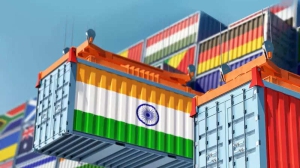With the digital transformations in governance, the importance of preserving, managing, and transferring knowledge is vital
When a new government steps into power, with it, comes a wave of new ministers and key officials. While the faces in charge and the work allocations may change, the machinery of governance must maintain a steady pace, ensuring continuity and stability. How does the Government ensure that critical knowledge and experience are preserved in this transition? This necessitates a comprehensive strategy for safeguarding and leveraging institutional memory. It is the collective knowledge, experiences, and insights accumulated within an organization over time. It is not just static record keeping but a dynamic living library that constantly changes as the Government evolves. As India continues to undergo rapid digital transformations across all spheres of governance, the importance of preserving, managing, and transferring knowledge within Government machinery becomes increasingly pronounced.
We can broadly classify the different types of Institutional memory within the Government into four categories: First is the Administrative and Legislative data, which includes government files, laws, regulations, gazette notifications, office memorandums, parliamentary questions, matters raised by elected representatives, court orders, procurement, human resources, etc. Second is data on citizens and beneficiaries, such as comments on public consultations, citizen grievances, and feedback, attributes of beneficiaries, etc.
Third is the programmatic Data on surveys and studies conducted, data and knowledge on various programs and schemes, and last is more experiential and qualitative like Initiatives, Experiences, Qualitative data on ideas, experiences, failures, initiatives, and knowledge from media and civil society.
The next challenge is searchability: to bind all the knowledge together through a common set of identifiers. The AoB rules define the distribution of various subjects, functions, and responsibilities among different ministries and departments of the Central Government. Within the framework of AoB rules, Ministries also have their Subject-wise work allocation. So, both these data points become like a hashtag that can be tagged to all different types of Institutional Knowledge.
The Ministry of Health and Family Welfare has implemented the EPITOME Portal, a brainchild of Hon'ble Union Minister Dr Mansukh Mandaviya, which aggregates data on pending grievances and files, infrastructure projects, parliamentary matters, data on programs and schemes, tasks and vacancies, different ideas from citizens and officers all tagged with the Health Ministry's 300+ Subject areas. The Governments must create specialized teams or departments responsible for capturing, curating, and disseminating institutional knowledge. One effective approach is establishing standardised templates for documenting projects, policies, and strategies.
These templates should include critical insights, challenges faced, and lessons learned. The Government can minimize information loss due to personnel changes by ensuring uniform documentation practices. In addition, a robust internal communication network should be established to facilitate the exchange of ideas and experiences among departments and individuals.
Regular workshops, seminars, and knowledge-sharing sessions can foster a culture of learning and collaboration. Platforms such as webinars, online forums, and internal knowledge-sharing portals can play a pivotal role in promoting the exchange of ideas and experiences across the government ecosystem. Officers' valuable insights and experiences should be preserved as they retire or move on to new roles. When officers transition out of their roles, they should be required to provide detailed briefs on ongoing projects, challenges, and strategies. The Anubhav portal was launched in March 2015 at the behest of the Prime Minister for retiring government officials to leave a record of their experiences while in Government service. However, this mechanism must be institutionalised well to connect serving officials with the retired ones.
We must prioritise creating, managing, and transferring institutional knowledge. The approach will involve investing in technology, nurturing a culture of continuous learning, and implementing structured processes for capturing and disseminating insights. By adopting mentorship programs the Government can bridge the gap between retiring officers and their successors. Institutional memory is not an abstract concept but a tangible asset that can shape the trajectory of governance in India. As the nation marches, let us recognise that the past holds the keys to a more informed and prosperous future. We must harness the power of institutional memory to drive meaningful change, foster efficiency, and ensure that the legacy of knowledge endures the tests of time.
(The writer is a Technology and Public Policy Consultant at MoHFW, GOI, views are personal)

























